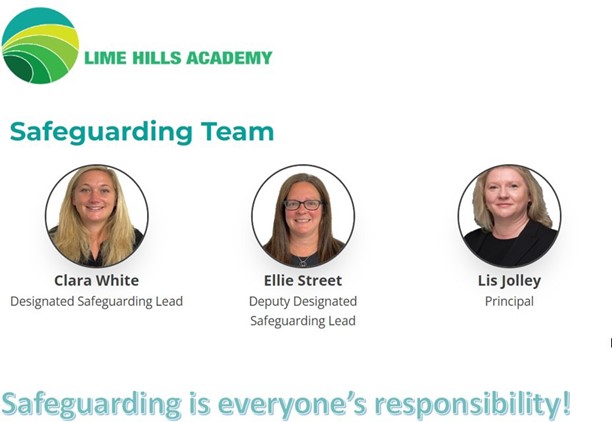At Lime Hills we want to make sure that you feel looked after, safe and happy when you are in and out of school. Sometimes we don’t know if something bad is happening, so you need to tell us. This policy looks at peer-on-peer abuse, and what you can do when you feel you are being abused, or when you notice someone else being abused. We can help you by:
A is someone who might be your friend, a student at school with you, or another young person you may know.
Abuse is something which usually physically or emotionally hurts an- other person by using behaviour that is meant to scare, hurt or upset that person.
Sometimes, it can be hard to know when abuse is happening, because not all abuse will hurt, scare or upset you, and you might not know it is happening. It’s really important you know when you are being abused so we can make sure it stops.
There are lots of different types of abuse. It is important you know what these types of abuse are so you know what to do if you see them.
Bullying can be different things, and isn’t just hitting or kicking another person.
Bullying can be done through another person, by one person sending another person to say nasty things.
This is sending inappropriate pictures, videos or messages – they can sometimes be called ‘nude pics’, ‘rude pics’ or ‘nude selfies’, but can also be rude messages.
Pressuring someone into sending these pictures, videos and messages is abuse.
Even if you are not the person who is sending them, it is illegal to have these kind of pictures or videos of a person if they are under 18 years old.
Sometimes, people can act sexually towards others and it might make them feel uncomfortable.
This can happen online, on social media, through messages and face-to face. It might make someone feel scared, embarrassed, uncomfortable or upset. It could be:
Any relationship you have should be good and happy. A bad relationship might make someone feel scared, confused, worried and even unsafe.
It’s really important that you know the difference between a good relation- ship and a bad relationship.
Good relationships
Bad relationships
It might be hard for you to know if you are being abused and you might not really understand it is happening. It is important you can recognise when behaviour isn’t appropriate. It’s also important that you can notice when someone else might be being abused. Some signs might be:
If you see someone else being abused, it is important that you help that person.
You should never walk way and ignore the problem if you see someone else being abused, because the person might keep upsetting them.
If you can, and it is safe to do so, tell the person abusing you to stop, but never get angry or hit them.
The first thing you should do is tell someone you trust. This could be a family member, a friend or a teacher.
You can also tell the person abusing you to leave you alone. If telling them to leave you alone would make you feel too scared or worried that they might hurt you, make sure you tell someone so they can help.
You should try not to:
Always remember that if you are being abused, it is not your fault and you are never alone.
You shouldn’t be scared to talk to someone if you are being abused. If you talk to an adult, we can make the abuse stop.
It is important you tell someone as soon as you are being abused, or you notice some- one else being abused.
Speaking to someone like your mum, dad, carer or member of school staff will mean that we can make sure the abuse stops and doesn’t happen again.
Remember, you can talk to any members of staff at The Nest They will listen to what you have to say and make sure you feel looked after, happy and safe.

